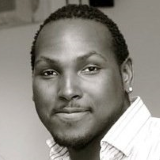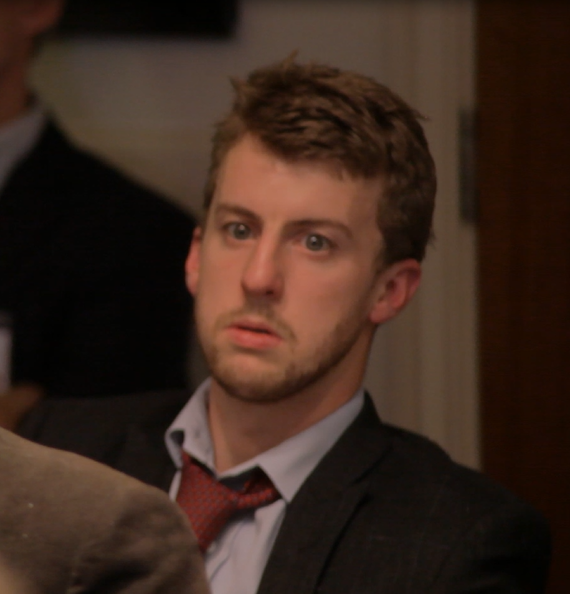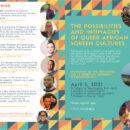Nigeria 2015: Goodluck Jonathan’s fight for survival – By Lagun Akinloye

 In a candid sit-down interview with the BBC last week, President Goodluck Jonathan announced with an air of confidence “I will surely win it, my party is still the strongest party”. Jonathan’s comments were made in reference to the highly anticipated presidential elections set to take place this Saturday and displayed the posture of a man who seemed unconcerned with the growing influence of the opposition All Progressive Congress (APC) and their candidate, the retired General Muhammadu Buhari.
In a candid sit-down interview with the BBC last week, President Goodluck Jonathan announced with an air of confidence “I will surely win it, my party is still the strongest party”. Jonathan’s comments were made in reference to the highly anticipated presidential elections set to take place this Saturday and displayed the posture of a man who seemed unconcerned with the growing influence of the opposition All Progressive Congress (APC) and their candidate, the retired General Muhammadu Buhari.
But the reality belies the boldness with which Jonathan answered the questions – the upcoming polls will be the most fiercely contested since the end of military rule in 1999. If Jonathan loses, he will become the first incumbent president in Nigeria’s democratic political history to do so.
A major factor that should not be discounted is the power of the state at his disposal. Influential US-based think tank The Brookings Institute predicted a victory for Jonathan in their ‘Foresight Africa Report’ published in January, stating “The greatest strength of the ruling PDP is its power of incumbency, and all the institutional support that goes with it.”
And whilst Jonathan has endured rifts and scandals within the ruling People’s Democratic Party (PDP) and his inner circle, the menace of Boko Haram and an economic downturn that has seen the naira tumble against dollar, he is asking for one more chance.
Goodluck in more than name
Jonathan entered the political fray after being handpicked as the deputy to Diepreye Alamieyeseigha in the 1999 Bayelsa State governorship elections on the PDP ticket and was thrust into the governor’s hot seat after his benefactor Alamieyeseigha was impeached over allegations of corruption in December 2005.
He was handpicked once again by outgoing president Olusegun Obasanjo as the running mate to Umaru Musa Yar’Adua in the 2007 presidential elections to the confusion and consternation of ambitious power brokers within the ruling PDP. Yar’Adua would go on to win the elections which the European Union (EU) observers described as having “fallen far short of basic international and regional standards for democratic elections”.
Yar’adua’s death in in a Saudi Arabian hospital in May 2010, and the subsequent swearing in of Jonathan as acting-President, signalled the meteoric rise of a man who went from a relative unknown to president in a little over 4 years.
Jonathan would ride the crest of a wave of popular support in 2011 to defeat Muhammadu Buhari in the presidential elections by more than 10 million votes – thus cementing his name as the most fortuitous politician in Nigerian political history.
“Just as Olusegun Obasanjo was seen as a beacon of light that followed the darkness of Sani Abacha in 1999, Jonathan was again seen as a symbol of hope,” says Sola Tayo, from the think tank Chatham House.
Learning the hard way
Jonathan would find the exalted seat of the presidency far from comfortable as his candidacy and subsequent election victory created a split within the PDP. Party bigwigs from northern parts of the country never forgave him for jettisoning the unwritten power sharing agreement which would have seen a Muslim candidate replace Yar’Adua in 2011. His insistence on running for re-election in 2015 further ostracised key party members which included his now fierce critic, Obasanjo.
The resulting defection of five powerful governors and scores of national assembly members into the arms of the opposition APC in November 2013 was seen as a direct fallout of Jonathan’s presidential ambition and struggle for control of the PDP.
“The PDP have taken a major dent because of Mr. Jonathan’s mismanagement of the party’s politics. Losing the major defectors will come at a cost on Saturday, but they still remain a formidable force,” says renowned blogger and political commentator Japheth Omojuwa.
Jonathan’s task in tackling the myriad endemic issues in the country was always going to be difficult. The political balancing act of appeasing vested interests, ensuring his own stability within the PDP whilst attempting to stem the surging tide of graft and violence needed an equation his administration has struggled to find.
The Challenger
Former governor of Lagos State and national leader of the APC, Bola Tinubu, stated at a political rally in January “Any country facing challenges like Nigeria, needs problem solvers. When America was in trouble they chose an ex-Military General, when Britain was challenged they looked for Sir Winston Churchill, now that Nigeria is challenged there is only man that can do the job and that is General Muhammed Buhari.”
Whilst political rhetoric is expected during electioneering, the APC has managed to sell the Buhari candidacy both at home and abroad with his “˜change’ slogan picking up traction throughout the country. Buhari is a known quantity to many Nigerians having overthrown the democratically elected government of Shehu Shagari in December 1983. He was deposed as head of state in a palace coup by Gen Ibrahim Babangida on 27 August 1985 and after holding a series of government top jobs during the 1990s, Buhari would return to the political frontline with three failed presidential bids between 2003 and 2011.
Buhari has described the PDP’s 16-year rule as “a disaster for the country and its citizens” and has made security a priority during his election campaign, promising to crush the Boko Haram Islamist insurgency within months if elected. Many feel his military background and disciplinarian credentials put him in a better position than Jonathan to tackle the group which has wreaked havoc in the north east of the country for over six years.
But at 72, in a global political setting where youth and dynamism is the new trend, Buhari does not fit the mould. The issues surrounding his educational qualifications and eligibility for the top job have been exaggerated, but Buhari with overwhelming support in the northern Muslim part of the country would need to secure much support among Christians in the south, where he is viewed with some suspicion due to allegations of a radical Islamic agenda.
The last roll of the dice
The outcome of the elections remains uncertain with reliable polling data non-existent. Jonathan’s re-election, despite his administrations manifest failures, remains a distinct possibility due to the goodwill he still enjoys from certain ethno-religious demographics. The Christian south-east and south-south region of the country gave Jonathan upwards of 85% of the total vote in 2011 and the same pattern is almost certain to be replicated this time round, with the middle belt and many minority groups following suit due to religious and historical sentiment.
The recent charm offensive in the Yoruba dominated south-west, which accounts for almost 20% of all registered voters, was aimed at drumming up support in a zone that could determine the election outcome due to the strong presence of both parties in the region. The north-west and north-east, with a combined 41% of voters, are Buhari strongholds, but Jonathan will rely heavily on his PDP governors to help him pass the victory threshold. A candidate needs 50% of the national vote and at least 25% of the votes in two-thirds of Nigeria’s 36 states to win the election.
Jonathan is in the midst of a battle for his political survival and the inability of his administration to reinvigorate the political, economic and social systems in the country has inadvertently given strength to the Buhari candidacy. This election will be remembered as the most keenly contested in Nigeria’s democratic history. Jonathan will need to display great political dexterity and a slice of good fortune if he is to weather the electoral storm successfully.
Lagun Akinloye is a journalist and Nigerian political analyst.







By Saturday mid-night, we will know who will rule Nigeria for 4 years. I hope Goodluck Jonathan should continue to finish what he stated, I mean, clearing up boko haram problem. Another person wouldn’t be good. Let’t give him chance, he will do many things right. From my understanding, he will be very effective now. He is now aware of his and administration mistakes. Especially, corruption and many other things he did not do or take of them. Bad roads, workers do not received salaries, especially, school/university teachers. I am not in Nigeria right now, but I am calling families and friends in Nigeria to vote Goodluck Jonathan. I was in Nigeria during Buhari regime. I was working at Notional oil, 47 marina, Lagos, very close to central bank. It was hell. I saw various executions. I wouldn’t forget that and when ever it come to my mind I became scared. I was young man, I saw those things. I would like peace to rain in Nigeria.
I agree on your analysis. the opposition have succeeded in mounting a fierce challenge to PDP and helped in creating the sense of urgency, wake up call to GEJ and increasing the awareness / expectation of the electorates, that’s democracy for us. another important thing I noticed is that non of the 2 parties want opposition, looking at the Nigerian state, Lagos is the commercial HQ while Abjua is the FCT, how will it look like if APC wins the presidency and also wins Lagos state, Rivers state and Kano, this means we are almost a one-party system (there’s high possibility that many PDP Gov will decamp to APC if Buhari Wins) . the political bigwigs have not consider this scenario. what has helped to boost opposition strength in the Nigerian polity is because Lagos whose economy is bigger than some African countries is at the forefront of opposition and possibly the highest donor / financier, I hope a balance if we don’t want one party system to exist if buhari wins tomorrow.
In London, Buhari promised that (1) his executive will be made up of individuals that are corruption free, this throws lot of question, does he really understand what corruption is? who and who will make up his cabinet, who is going to recommend the executives to him??, does he know all the corrupt individuals in 744 local government where he will select his cabinet members? Is he sure that the means in which he’s being sponsored for election is corruption free? within the current leadership of APC, let him confirm 3 individuals that’s corruption-free (2) He will not go after individuals who has committed corruption in the past, that he will deal with anyone who commits corruption from may 29th onwards.- this throws another serious question to him, Is he telling us that he will grant amnesty to past corrupt individuals? will he create a legal Conduit -pipe through which his sponsors will make recovery . is their anywhere in the world that a national leader have succeeded without history.
In 2011, Nigerians had high expectation on GEJ, hoping that he will either make magic or miracle, some Nigerians are making that mistake again by hoping that Buhari will change everything overnight ( miracle / magic) and if that fails to suffice in the next 4years, they will rubbish him as they are doing at GEJ now and am sorry for them because they seem to forget that Buhari will no longer lead as a dictator rather he will need to manage stakeholders ( National Assembly, The Judiciary, Religious leaders, traditional leaders, NGOs, The press, external interest and key business executives, bigwigs who are king makers and the voice of the poor masses) which he lacks experience in managing going by his military leadership experience. this points to the facts that lots of activates will slow down including the economy will suffer setback. Buhari will need to go through learning curve and I am not sure how long it will take to come on speed considering his age and again the capacity of his memory (brain). GEJ has made some mistakes and undermined the insurgency of boko haram but sincerely he have made lots of achievements though his cabinet members failed to present it as expected by Nigerians who dislike quiet achievers.
A cannot imagine why for the life of me a Nigerian journalist such as u would fall for the western media’s gambit of a “muslim north and christian south” as stated in your article, like u don’t know Nigeria’s ethno-religious distribution is anything but that. Kindly educate yourself more by reading this insightful piece by Tolu Ogunlesi – http://www.nytimes.com/2015/03/24/opinion/nigerias-internal-struggles.html?_r=0